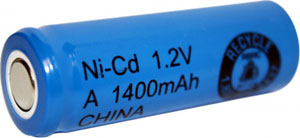In today’s rapidly evolving world, energy consumption and sustainability have become critical concerns, leading to a surge in demand for eco-friendly alternatives. Among these, battery technology stands at the forefront. Batteries are essential to power devices, vehicles, and energy storage systems, yet traditional options such as lead-acid and nickel-cadmium batteries pose environmental risks due to toxic materials and inefficient recycling processes. As the world shifts toward greener energy solutions, alternatives and replacements for conventional batteries are gaining momentum, offering a more sustainable approach to meeting energy needs.
The Rise of Lithium-Ion Batteries
Lithium-ion batteries Li-ion have become the most prevalent eco-friendly alternative to older technologies. They offer higher energy density, lower self-discharge rates, and longer lifespans, making them ideal for use in electric vehicles EVs, smartphones, laptops, and renewable energy storage systems. Unlike lead-acid or nickel-based batteries, Li-ion batteries have a lower environmental footprint due to their higher efficiency and recyclability. However, while lithium-ion batteries are an improvement, they are not without challenges. The extraction of lithium and cobalt, essential components of these batteries, often leads to environmental degradation and human rights concerns. As a result, researchers are exploring more sustainable materials and designs for future batteries.
Solid-State Batteries
 One of the most promising battery alternatives is the solid-state battery. Unlike conventional batteries that use liquid electrolytes, solid-state batteries employ solid electrolytes, reducing the risk of leakage and increasing overall safety. These batteries are not only safer but also more energy-efficient, offering greater energy density and longer lifespans compared to their lithium-ion counterparts. Solid-state batteries are considered the next frontier for electric vehicles, with the potential to extend driving ranges and reduce charging times significantly. Moreover, they could enhance the sustainability of battery production by eliminating the need for toxic liquid electrolytes and reducing dependency on rare earth metals.
One of the most promising battery alternatives is the solid-state battery. Unlike conventional batteries that use liquid electrolytes, solid-state batteries employ solid electrolytes, reducing the risk of leakage and increasing overall safety. These batteries are not only safer but also more energy-efficient, offering greater energy density and longer lifespans compared to their lithium-ion counterparts. Solid-state batteries are considered the next frontier for electric vehicles, with the potential to extend driving ranges and reduce charging times significantly. Moreover, they could enhance the sustainability of battery production by eliminating the need for toxic liquid electrolytes and reducing dependency on rare earth metals.
A Cost-Effective Alternative
Sodium-ion batteries Na-ion are another emerging solution gaining traction due to their low cost and abundant raw materials. Unlike lithium, sodium is widely available and easier to extract without the environmental toll of lithium mining. AG13 battery equivalent have also perform well in various applications, including energy storage systems for renewable sources like wind and solar power. Ongoing research is making strides in improving their efficiency. They are expected to play a crucial role in reducing the cost of energy storage, particularly in regions where affordability and scalability are key concerns.
A Renewable Alternative
Beyond battery technologies, green hydrogen fuel cells are emerging as a clean, renewable energy source. Hydrogen fuel cells generate electricity through a chemical reaction between hydrogen and oxygen, emitting only water as a byproduct. This makes them an attractive alternative for powering electric vehicles, especially in industries like aviation, shipping, and heavy transportation, where battery limitations are more pronounced.

